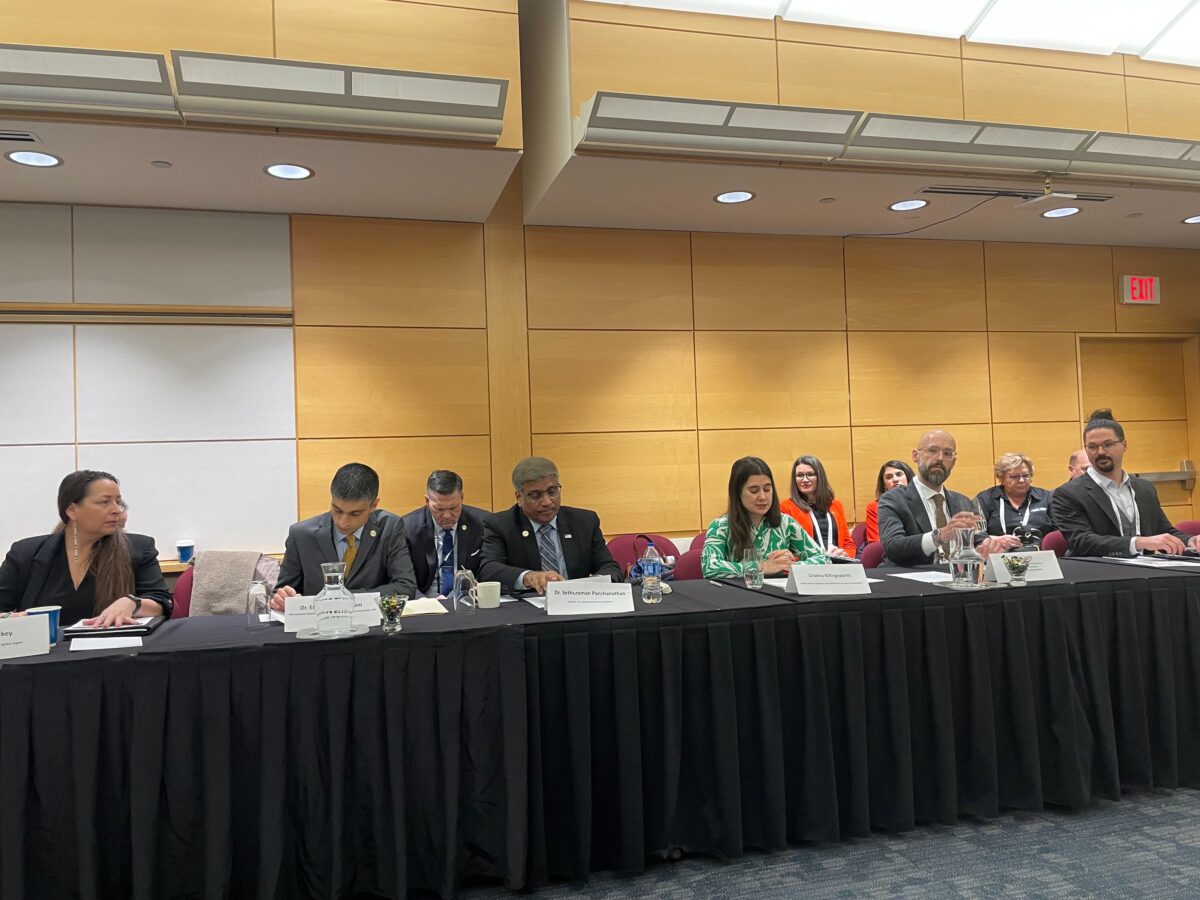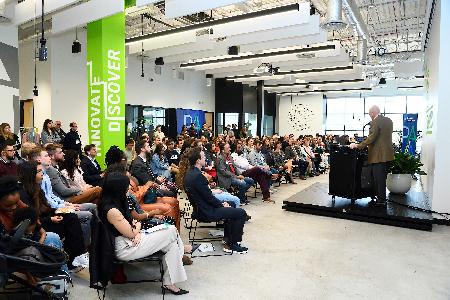In this hyperpartisan political climate, Cristina Killingsworth has seen something rare: support for federal initiatives across the aisle.
The acting assistant secretary of commerce and economic development visited 13 of the 31 regions her employer, the Economic Development Administration (EDA), designated as Tech Hubs. Through that process, Killingsworth witnessed bipartisan support for the $10 billion program from members of Congress and other officials in those regions.
This makes her confident the program, which the Biden administration launched to help regions boost their economic competitiveness in industries like clean energy and quantum computing, will remain active under the incoming Trump administration.
“As many times as those officials have a ‘D’ after their name, they have an ‘R’ after their name as well,” Killingsworth told reporters during a media briefing Tuesday. “While I can’t predict the future, I can’t predict whether or not there’s going to be additional funding — what I can say is that everybody is behind the idea of bolstering US economic competitiveness and US national security. And so, we’re hopeful that the program will continue for years to come.”
She and other leaders of the EDA, housed under the Department of Commerce, showcased this hope during a briefing before a two-day conference the National Science Foundation and the EDA are hosting in DC. The Roadmap Summit will showcase technological advancements supported by the national government. It features panels and workshops about biotechnology, quantum, semiconductors and other sectors already backed by millions in federal funds.
Out of the country’s 31 Tech Hubs, the EDA selected only 12 regions for definitive funding this July. The list of 12 did not include Baltimore, where a consortium filed a $70 million proposal to boost biomanufacturing capacity, job training and startup investor networks; or Philadelphia, whose bid organizers sought $80 million to support precision medicine development.
EDA officials toured both regions in August, and leaders behind each bid remain adamant about the prospect of getting more Tech Hubs funds once available.
Congress has appropriated just $541 million of the Tech Hubs’ $10 billion allocation in the CHIPS and Science Act of 2022.
That’s only about 5% of the authorization, Killingsworth noted.
Tech Hub funds from the initial round with the 12 winners are “out the door,” she added.
Leaders from two of the winning hubs — Tusla, Oklahoma and Akron, Ohio — told reporters at the briefing that specific allocations for the funds are still being planned in their respective regions.
“We’re really excited about the work that’s going to happen with the money that we’ve been appropriated so far,” Killingsworth said.
President-elect Donald Trump noted his disdain for the CHIPS and Science Act on a podcast prior to the election. Rather than building up US manufacturing, Trump outlined a plan to convince foreign semiconductor manufacturers to establish factories by instilling high tariffs. But tariffs are paid by the importer — not the exporter — and the plan could increase prices for the consumer, Technical.ly previously reported.
Despite the incoming president’s disregard for the legislation behind the Tech Hubs funding, Killingsworth said she and colleagues are still working to keep that money in play.
“We think that those investments have the possibility of being transformational,” she continued, “and we and the team are hustling as fast as possible to make sure that our tech hubs have access to those funds for future funding.”
Before you go...
Please consider supporting Technical.ly to keep our independent journalism strong. Unlike most business-focused media outlets, we don’t have a paywall. Instead, we count on your personal and organizational support.
Join our growing Slack community
Join 5,000 tech professionals and entrepreneurs in our community Slack today!






